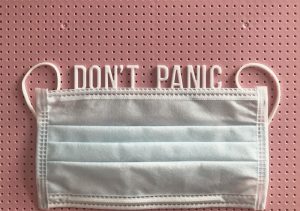
It was a lucky opportunity to escape work that wasn’t feeding his soul, if you ask me. There was nothing wrong with his management skills nor his brain. I remember thinking at the time, ‘What the hell is he going to do all day?’ and wondered if he’d find employment elsewhere. He never did.
He’s 70 now, still has a full head of hair, which is 75% his original brunette, is fitter than he’s ever been and sharp as a bullet.
Some might say having less stress through not being employed has helped him age well.
It’s important to maintain a purpose
The thing is my Dad has never-not worked. From the day he ‘retired early’ he’s always had a project. Whether it be committee member, chair, a charity project, membership of a club, or a creative project at home (the last one was to build a suit of armour the old school way). He keeps busy, and not just busy for the sake of busy. Sure, he’s master of his own destiny, he chooses his work hours and doesn’t need to worry too much about finances, knowing his retirement plan more than covers their needs. If you ask him what his secret to living well is he’d reply, ‘Having a purpose. A man needs purpose.’ He’s said it all my life.
He finds something he can be passionate about (making a difference), and something that connects him to a skill he loved as a child (being creative). So, whether he’s taking on some physical challenge to raise money for charity or building a car from scratch, he has purpose and meaning in his day-to-day life.
So I’ve always had a fascination with the concept of purpose and its importance. It’s what made me leave my corporate role after fifteen years in a successful leadership position. I felt I wasn’t delivering work that aligned with my purpose and so I’d lost my passion for the content (but not the team).
Psychologists tout it as the key to greater wellbeing. Doctors have found people with purpose in their lives are less prone to disease.
As our working population ages, we’re being told all the time that millennials and beyond are more motivated by ‘purposeful’ work than any other generation before them.
In my father’s case, you didn’t have the luxury of pursuing your purpose, you got a job you could be good at, worked hard and hoped it lasted a long time. So early retirement for him allowed him to follow his purpose more. But is having a desire for purposeful, meaningful work enough and how do you find your purpose?
The Japanese have the concept of ikigai which translates as ‘a reason for being’ and is often shown as the centre of a Venn diagram incorporating the four following elements: what you love, what you’re good at, what you can be paid for, what the world needs. The sweet spot is the place they overlap. That, they say, is where you’ll find your purpose. A reason to jump out of bed everyday with vim and vigour (only if the tank is already full though I wonder…). But can it really be the key to greater wellbeing or is it just one in a multitude of factors that make up the elusive elixir of life?
As I reflect on the concept of purpose, I think we don’t give enough quality time to explore it as a concept and what it means in our lives. As Nick Craig and Scott A. Snook say in their fabulous article, ‘From Purpose to Impact’ in Harvard Business Review, ‘We believe that the process of articulating your purpose and finding the courage to live it—what we call purpose to impact—is the single most important developmental task you can undertake as a leader.’
They go on to say that purpose ‘is not what you do, it’s how you do your job and why—the strengths and passions you bring to the table no matter where you’re seated.’
What’s really interesting about their article is the link they make to action. That a purpose without an idea of the impact you will create from it remains a futile personal development plan without energy, passion and inspiration. They argue a purpose-led impact plan is what creates great leaders. ‘Your actions—not your words—are what really matter. Of course, it’s virtually impossible for any of us to fully live into our purpose 100% of the time. But with work and careful planning, we can do it more often, more consciously, wholeheartedly, and effectively.’
So perhaps purpose is a fundamental part of the secret to ‘living well’, but the key is taking time to understand what your purpose for being here really is and how you’ll put it into action in your everyday life… hmmm, now what did I do with my own purpose?
Read more of the HBR article From Purpose to Impact.
For more information on the Human Relations Consultancy and Facilitation course we off, please contact us.











